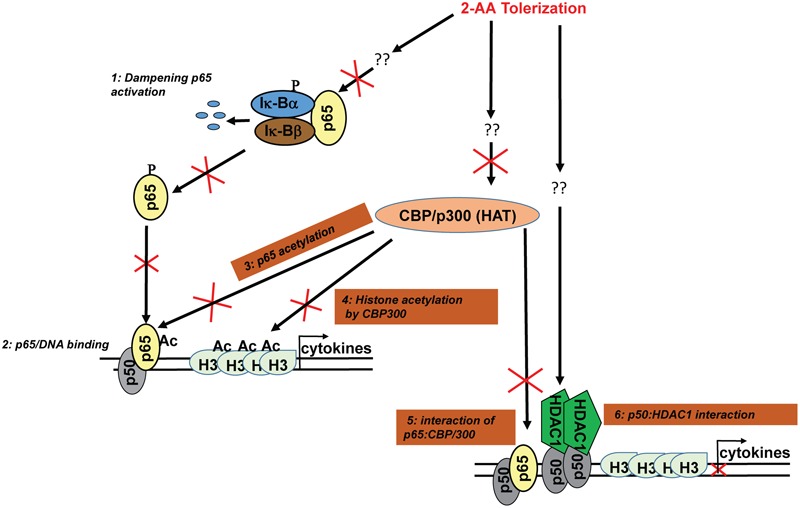FIGURE 1.

2-AA-mediated immunomodulation. Our studies have shown that 2-AA tolerization dampens the activation of NF-κB pathway (1) (Bandyopadhaya et al., 2012). The DNA binding activity of NF-κB p65 (2) (Bandyopadhaya et al., 2012) is impaired due to reduced acetylation level of p65 in 2-AA-tolerized cells (3 this study). 2-AA tolerization reduces histone acetylation (H3) via downregulation of CBP/p300 HAT activity and expression (4 this study) and the protein–protein interaction between p65 and CBP/p300 (5 this study). The upregulation of HDAC1 initiates HDAC1–p50 interaction and p50 homodimer–HDAC1 complexes are recruited at targeted sites (6 this study). Consequently, HDAC1 acts to deacetylate H3 and dampens transcription of cytokines.
